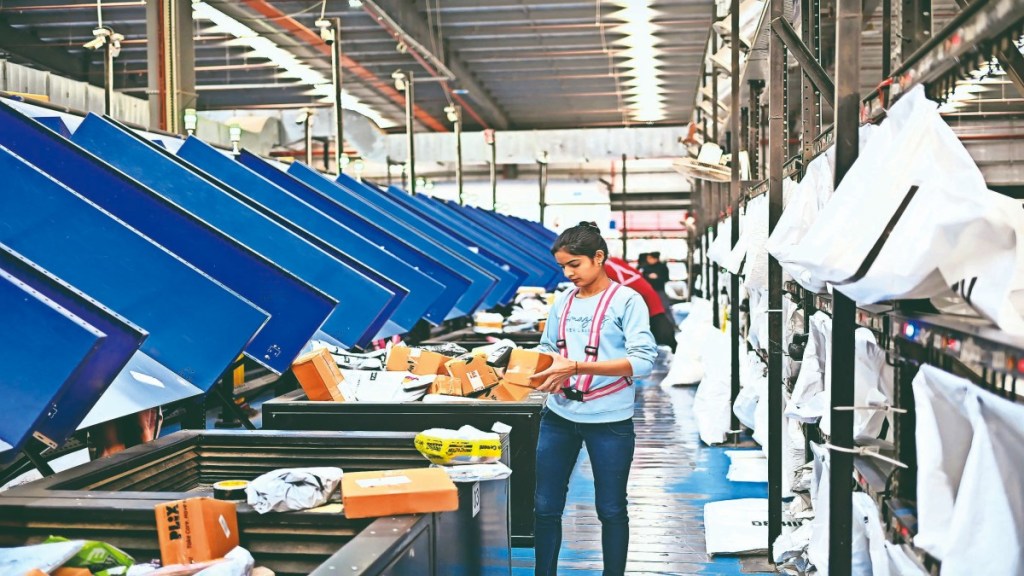Gone are the days when women operating flights or trains, delivering food orders and supplies were celebrated as achievements across sectors. Today, women’s participation has grown manifold in all areas, and in some cases, it’s an all-women team at play.
Tata Steel started an all-women shift at its Noamundi iron mine in Jharkhand last year as part of the company’s move to create an equitable workplace and empower women in traditionally male-dominated industries. This shift comprises women employees for all the mining activities of the shift, including heavy earth moving machinery, shovel, loader, drill, dozer operators and shift supervision.
The fact that Tata Harrier and Tata Safari SUVs are built by women is not just an industry-first initiative but over 1,700 women hailing from some of the remotest corners of Maharashtra are credited with building your favourite cars from scratch. This activity has been ongoing for more than three years at the Tata Motors passenger vehicles (PV) plant in Pimpri-Chinchwad, Pune, where the number of PVs produced annually has gone up from 1.5 lakh in 2020 to over 5 lakh in 2022.
Similarly, logistics company Maersk in one container freight station in Ponneri, Chennai, has an all women-operated facility. The move sees one complete shift operated entirely by women employees, marking a significant step forward in Maersk’s commitment to diversity and inclusion, says an official release. The 125,000-square-foot warehouse facility employs women across all operational functions, including loading/unloading, picking, surveying, security, housekeeping, administration, and forklift operations. The initiative will increase women’s representation at the container freight station from 3% to 13% of the total workforce, with women comprising 21% of the workforce in the transformed warehouse, states a company release.
Madhya Pradesh chief minister Mohan Yadav inaugurated the MP tourism corporation’s first exclusively all-women operated hotel Amaltas located in the popular tourist destination of Pachmarhi last year in December. Madhya Pradesh has seen a rise in tourism, with around 11 crore visitors in 2024, and initiatives such as these will only add to the efforts of the state.
Another establishment, an all-women-operated café, Handloom Cafe in Pranpur, Chanderi, part of Madhya Pradesh’s first craft village, is slowly becoming a popular spot for tourists. It is an apt place for those looking to savour local cuisine and visit the homes of local weavers run by a dozen women. This café is developed by the Madhya Pradesh Tourism Board to provide livelihoods to families as well as empower women in the village. Its uniqueness lies in serving local dishes in Bundeli thali, and the cafe sees a surge in footfalls over the weekends.
The café is part of the Craft Handloom Tourism Village, home to around 240 weavers of Chanderi sarees.
An all-women-operated facility like the one run by logistics company Delhivery rolled out its fourth all-women-operated hub in Mayapuri in Delhi in 2024.
“We are committed to fostering inclusivity by increasing women participation across all our logistics hubs. Over the past year, we have accelerated the recruitment of women, with their headcount increasing by 60% in FY24 and growing further by 13.8% up to Q3FY25. Women now comprise 12.8% of our total workforce, and we continue to make strides in integrating more women into our operations nationwide,” says Suraj Saharan, chief people officer & co-founder.
The company is increasing the presence of women across all its hubs, ensuring that the logistics network is more diverse and equitable. At the same time, the women hub facilities, such as those in Moga (Punjab), Sikar (Rajasthan) and Mayapuri (Delhi) are exclusively run by women, with plans to expand into Uttar Pradesh and other key regions. These initiatives have not only empowered more women to join the logistics workforce but have also driven their participation in leadership opportunities. “We have seen women drive operational efficiencies in the network due to enhanced productivity and reduced attrition. Looking ahead, we aim to further scale both these initiatives-expanding women-led hubs while also ensuring that women have an increased participation across all hubs in our network. By doing so,
we aspire to set new industry benchmarks for diversity and inclusion, making logistics a thriving career option for women at every level,” adds Saharan.
Committed to go beyond policies and build a culture where safety, equal opportunity, and growth are non-negotiable, Savana, one of the fastest growing fashion platforms headquartered in London, dealing with apparel and accessories, has 80% of the women workforce in its Gurugram warehouse. “From rigorous training programmes to flexible work arrangements, we ensure that every woman feels secure, empowered, and seen. Fashion thrives when its foundation is strong, and for us, that foundation is built by the incredible omen behind the scenes,” shares Yogesh Agarwal, country head, Savana.








